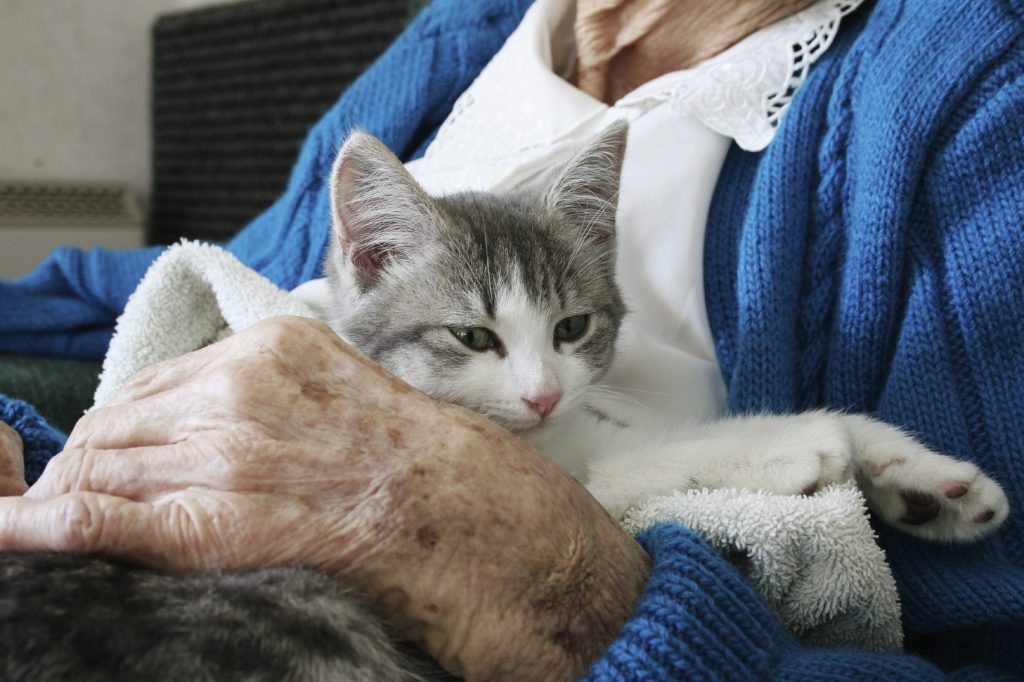Animal Assisted Therapy (AAT) offers animals that have been trained to improve an individual’s emotional, physical and social well-being and reduce anxiety, improve self-esteem and facilitate healing. AAT dates back to the 1940’s, when a corporal in the army brought his Yorkshire Terrier into the hospital to cheer up the wounded soldiers. It worked so well that the dog continued to comfort all patients in the hospital for the next 12 years. Animal-assisted activities are different from AAT, and include seeing-eye dogs for those that are visually impaired, where the emphasis is on physical healing and psychological support.
Research continues to show the endless health benefits of AAT, including reducing blood pressure, anxiety and creating a calming effect for people dealing with health issues. Animals help people feel less lonely, bringing out the best in them by reducing feelings of depression and isolation. Through their interactions, animals also stimulate mental activity in people. Animals are pure souls that are non-judgmental, especially to those dealing with disfigurements, deformities or uncomfortable medical procedures. Science continues to show that having a dog helps lower blood pressure and cholesterol.
THE DIFFERENCE
Animal Assisted Activities distinguish themselves from AAT by providing a variety of different environments where dogs assist in educational activities, improve motivation and enhance quality of life. These activities primarily involve casual visitations from animals that target specific medical conditions and individuals. Children tend to do well with animals, making it easier for them to express themselves than with other children or adults by creating a calming effect, especially for children who have been traumatized mentally or physically. Many times individualized attention and preparation is required for each situation.
AAT used all sorts of animals including dogs, cats, horses and dolphins, and traveling to where the person lives may be required. Schools, libraries, nursing homes and hospitals enjoy using AAT, as there is typically no preparation needed when animals come to visit. Volunteers usually bring their animals at specific times where patients are encouraged to interact, pet and talk to the animals.
SAFETY
Safety is always a concern when working with animals, and it is important for volunteers to adequately prepare and train their animal by ensuring their animals are immunized and in good health. Larger animals like horses and dolphins require trained, certified therapists for AAT. Some people are afraid of animals, so it is important to assess the willingness of clients and patients to participate in AAT. A good place to start involves visiting the site with the animal to evaluate a potential interaction and relationship.
ALLERGIES
Allergies are a concern, especially for patients where the response could be severe. Washing hands often by all involved, as well as regular bathing of the animal before visits, helps to keep dander and allergic reactions down. Anyone dealing with severe mental health disorders needs to be closely monitored for the safety of the client as well as the animal. Anyone dealing with immune deficiencies should get clearance from their doctor before participating in an AAT program.
AAT plays a huge role in the healing process, and it’s well worth the effort to locate an AAT program in your area. It can be part of an effective plan for treatment of all sorts of health problems, from Attention Deficit Disorder (ADD) to cerebral palsy, bringing a healing response when other therapies have been unsuccessful.










